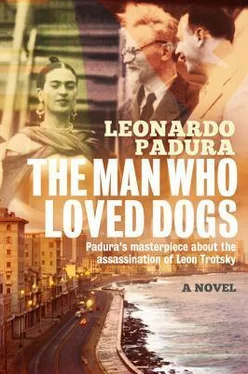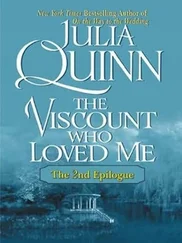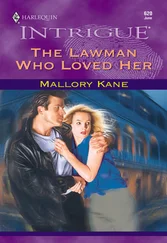“Do you know how I was sure that López was Mercader, before reading those papers — before seeing the photo?”
“I don’t know. . Because of what he said to you about Trotsky’s scream, right?” I guessed, willing to give him a break: at the end of the day, Iván hadn’t killed anybody or helped anyone else get fucked over. He was definitely a victim, after all.
“No, no, the key was the way he treated his dogs and how he looked at the sea. He was Mercader in search of the happiness he felt in Sant Feliu de Guíxols. His paradise lost. . Cuba was a placebo.”
“So how could you keep talking to him after being sure that he was Mercader?”
Iván looked into my eyes and I stared back. He mechanically drank his coffee, grabbed the cigarette packet, and removed another cigarette. How many was he going to smoke?
“I think I was never sure that he was Mercader. When López told me about Mercader’s life, it seemed that he was talking about a man from long ago, I don’t know, from the nineteenth century. . And although it sounds morose, I wanted to know how that story ended. But above all, I felt he needed me to listen to him.” He paused and lit a cigarette. “Do you know what bothers me most about this whole story?”
“The lies?”
“Besides the lies.”
“That Stalin perverted it all? That likely his same comrades killed Mercader, poisoning him with radioactivity?”
“More than that.”
I stayed silent. When you looked at it all, everything in that story bothered me. Iván smoked without taking his eyes off of me.
“What he stuck in here,” he said, and pointed at his shaved head. “When I read those papers and had a clear idea of what Ramón Mercader had done, I felt disgust. But I also felt compassion for him, for the way in which he had been used, for the shame it caused him to be himself. I know: he was a murderer and doesn’t deserve compassion; but I can’t help it, dammit! Maybe it’s true that his own people released radioactivity into his blood to kill him, as Eitingon says, but it wasn’t necessary, because they had already killed him many times. They had taken everything away from him: his name, his past, his will, his dignity. And in the end, for what? Ever since he said yes to Caridad, Ramón lived in a jail that followed him until the very day of his death. Not even by burning his entire body or by believing he was someone else could he get rid of his history. . But, despite it all, I felt bad knowing how he had ended up, because he had always been a soldier, like so many people. . And if they killed him, you can’t feel anything but compassion for him. And that compassion makes me feel dirty, contaminated by the faith of a man who should not deserve any compassion, any pity. That’s why I refuse to believe that his own people killed him, because, in a way, that would make him a martyr. . And I don’t want to publish anything, because just to think that this story could move someone to feel a little bit of compassion makes me want to vomit. .”
I looked at my friend and felt that I was finally beginning to understand something. His life (if you’ve come this far, you already know) had been a series of disgraces and unwarranted but unavoidable frustrations — so many and at the same time so common that it seemed incredible that the weight of his times and his circumstances could fall on one man alone. It was as if he personally was chosen to receive each one of the blows meant for an entire generation of people forced to be gullible. To top it off, he had lived with that damned story inside him for almost thirty years and had the disgrace that Ana, the purest thing in his life, should reproduce with her death Ramón Mercader’s final torture and that he should see himself forced to watch, day after day, an agony that couldn’t cease to remind him of a despicable and despised murderer. Even so, along with indignation, Iván felt compassion for that man and his fate, and that feeling provoked an intense rancor toward himself.
“Iván, he was one of them and they treated him ruthlessly, as they taught him from the beginning that others should be treated. But he doesn’t deserve your compassion for any of that.”
Iván thought for a few seconds. He must have been weighing the consequences of what he wanted to tell me, and just by looking at him I sensed that it wasn’t going to be anything pleasant. It was at that moment that I remembered, I’m not sure through what association of ideas, the story of Iván’s desire to travel to Italy.
“It’s just that I can’t go on. .” he said at last. “I’ve spent my entire damned life with the feeling of trying to escape from something that always grabs me, and I’m tired of running. . Now, take those papers and leave. Go on, I want to lie down.”
Almost relieved, I stood up, but I did not grab the papers. When I went to leave, I turned around and saw him smoking again. Iván had his eyes fixed on Truco, who was sleeping in the corner. I felt pity for my friend and for his dog, real and justified pity, but also an enormous desire to tell it all to go to hell, to curse the entire world, to disappear. Of course, I didn’t need to ask Iván what he had been trying to escape from throughout his life; I knew that he was fleeing from fear, but as he himself said, no matter how much you run and hide, fear always gets you. I know all too well.
“We’re fucked. All of us,” I said. I don’t know if I said it out loud.
How is it possible that I let so much time go by? It’s true that I was — am — also afraid, but Iván deserved more from me.
It wasn’t until December 22 that I finally went out to search for Iván. My wife gave me the excuse, although it wasn’t very good, that she wanted to invite him over to eat with us the night of the twenty-fourth. The problem was that Iván and I both had always hated the holidays and viewed the festive spirit that people assumed around that time as an obligation.
When I got to his apartment, I found the door and the window shut. I knocked several times, without any response. Something about the house seemed strange to me, although at that moment I didn’t notice what could be out of the ordinary, besides the inscrutability and the silence.
Since it was barely three in the afternoon, I went to the veterinary clinic where Iván worked and also found it closed, with the chain and the lock he tended to put between the door and the doorframe. I asked a woman who lived across the street and she told me that Iván had not come for two or three days, and that had her worried: he was never away for so long.
I returned to Iván’s block and knocked on the house of the neighbor who had lent the color television during Ana’s illness. The man recognized me and invited me in, but I told him I was in a rush and just wanted to know if he had seen Iván.
“Three days. . No, I haven’t seen him in about three days.”
I thanked him and, out of basic courtesy, I wished him a Merry Christmas, and the man responded with two words full of meaning:
“ Lo propio .”
When I was walking toward the Pontiac, asking myself where in the hell Iván could have gone, I remembered that the Christmastime formula his neighbor had offered me was the same one that, according to my friend, he had said by way of farewell to the man who loved dogs, on the very day they met for the last time, exactly twenty-seven years ago. And at that moment, a light went off in my head. How was it possible that Truco didn’t bark when I knocked at the door of the apartment? Iván and Ana’s dog was a compulsive barker, and he would have stopped making noise for only a few reasons: if he was very sick, or if he wasn’t at home, or — the most probable — because he had died, perhaps of melancholy over Ana’s absence.
Читать дальше











